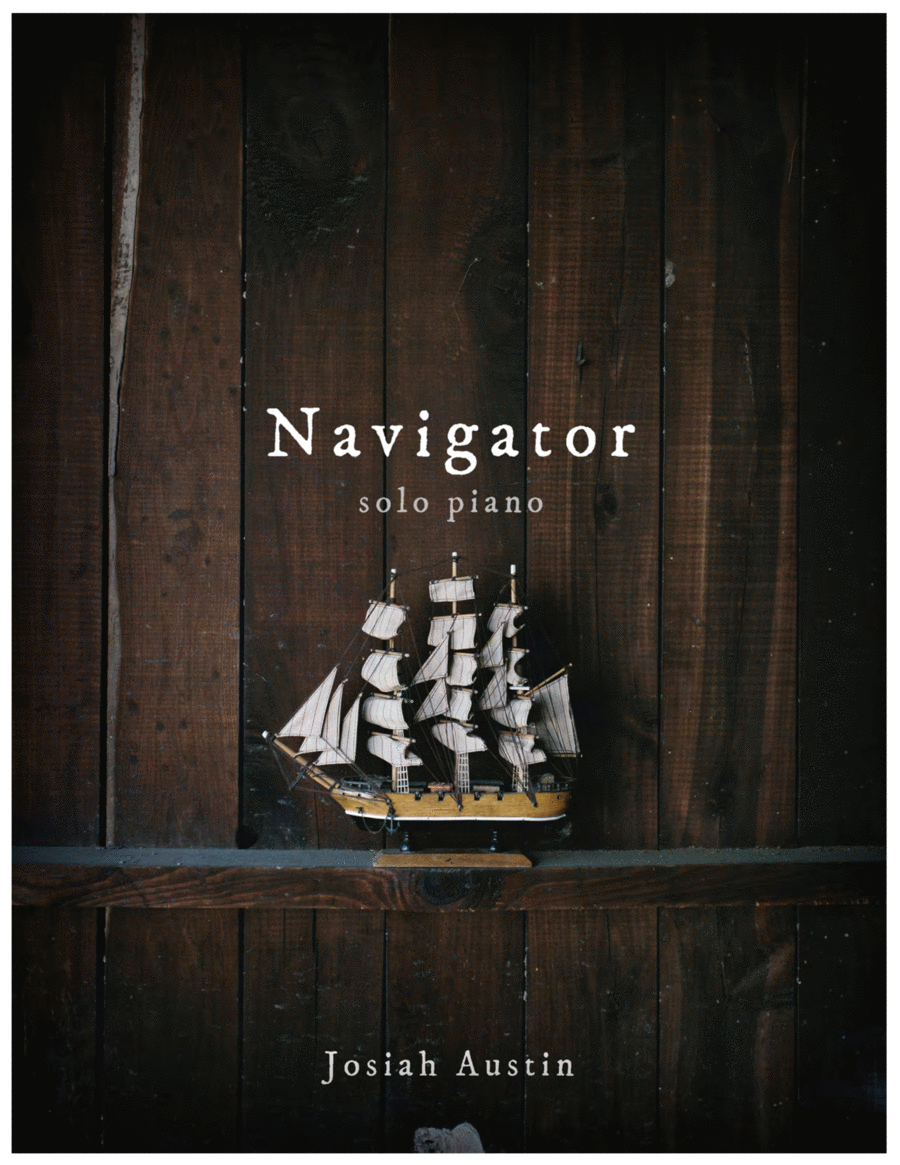Piano Solo - Level 3 - Digital Download SKU: A0.1018090 By Josiah Austin. By Josiah Austin. 20th Century,Classical,Contemporary,New Age. Score. 6 pages. Wistful Hands #6896741. Published by Wistful Hands (A0.1018090). Navigator is the tale of a model ship, dreaming of sailing the high seas. It is filled with hope, determination, adventure, melancholy, and realization. For fans of: Ludovico Einaudi, Nils Frahm, Dustin O'Halloran, Olafur Arnalds, Joep Beving, Yann Tiersen, Max Richter, Library Tapes, Hania Rani solo piano, piano, solo, neoclassical, neo-classical, contemporary, darkwave, ambient, mood, sheet music, pianist, sight reading, relaxing, hopeful, hope, beautiful, beauty, feel good, delicate, intimate, imaginative, thoughtful, sentimental, reflective, reminiscence, reminiscent, nostalgic, nostalgia, passionate, adventure, adventurous, determined, determination, self-discovery, memories, childhood, wonder, emotive, deep, introspective, loneliness, wistful, magical, intriguing, melancholic, melancholy Composer: Josiah Austin Artist: Josiah Austin Publisher: Wistful Hands © 2022 Josiah Austin.
